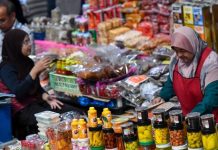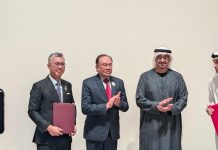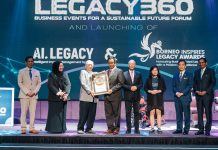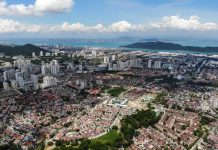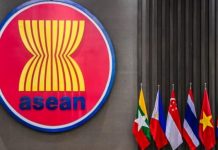Highlights:
- MPs unite to form Whatsapp group to discuss Gender Equality
- PM: Riot at temple criminal, not racial
- 16 remanded in temple incident
- Malaysia exploring new markets for palm oil
- AmBank targets up to 40 per cent SME loan growth
- Mobile Shopping intensifies across APAC
- Prominent global leaders set agenda for future growth of global Islamic Economy
MPs unite to form Whatsapp group to discuss Gender Equality
Members of Parliament from the Government and Opposition have set aside political differences to create a ‘WhatsApp group’ to focus on discussions surrounding the formulation of the Bill on Gender Equality. Deputy Women, Family and Community Development Minister Hannah Yeoh Tseow Suan, who announced the matter at the Dewan Rakyat today also invited opposition MP Datuk Dr Noraini Ahmad to add any remaining female MPs into the group to share their thoughts and suggestions.
PM: Riot at temple criminal, not racial
Prime Minister, Tun Dr Mahathir Mohamad said the riot at a Hindu temple in Selangor yesterday was criminal in nature and the perpetrators will be dealt with severely according to the law. He said there was no racial or religious element in the incident although it was linked to the relocation of the Sri Maha Mariamman Temple at USJ 25 in Putra Heights. He said it was clear from the preliminary investigation of the first incident early yesterday that it had a criminal element and it was the same in the case of the subsequent incident which involved damage to property and injury to police personnel. “The government regrets the irresponsible acts of the criminals who caused chaos in the temple area and injured members of the security forces and rescuers in the riot,” he said in a statement. Tun Dr Mahathir added that since the incident was criminal, the police have been directed to take further action to address and control the situation immediately.
Meanwhile, the Magistrate’s Court in Kuala Lumpur today issued a remand order for between two and five days against 16 individuals, including three employees of One City Development Sdn Bhd (One City), for investigation on the commotion. Magistrate Nor Ariffin Hisham issued the order against the suspects, aged between 18 and 49, to facilitate police investigation under Section 435 of the Penal Code for mischief by fire, Section 148 of the same law for rioting, Section 427 of the same law for committing mischief and Section 447 of the same law for criminal trespass. The riot started at the temple on Monday morning, following a scuffle between two groups which resulted in several people being hurt and vehicles torched.
Malaysia exploring new markets for palm oil
Primary Industries Minister Teresa Kok said Malaysia has started exporting palm oil to Bermuda, the Philippines and African countries with the aim of boosting exports of the commodity. She told the Dewan Rakyat today that palm oil exports to Bermuda accounted for 159 tonnes, African countries (237 tonnes) and the Philippines (331,990 tonnes). “Besides exploring new markets for palm oil, the government is targeting to have 100 per cent of plantation companies in the country certified with the MSPO (Malaysian Sustainable Palm Oil) by end of next year,” she said.
AmBank targets up to 40 per cent SME loan growth
AmBank Group targets to achieve a 30 to 40 per cent growth in small and medium enterprise (SME) loans over the next three years. Group Chief Executive Officer Datuk Sulaiman Mohd Tahir said the bank’s total loans amounted to RM120 billion to-date. “Currently, the SME segment contributes more than RM11 billion to our loan book and we expect to increase the number,” he told reporters after the launch of AmBank BizRACE Season 2 today.
Mobile Shopping intensifies across APAC
Evolving technology has been transforming the global retail landscape and the way consumers are shopping in the past decade. GfK’s latest FutureBuy report reveals a continuing surge in online shopping across most of the tracked product categories, with 63 percent of consumers agreeing that their mobile device is becoming their most important shopping tool. In the latest GfK FutureBuy study, 11,000 online interviews were conducted in July 2018 across 11 Asia Pacific markets to understand consumers’ shopping habits and behaviours across 18 product categories ranging from packaged food and beverages and apparel to home appliances and wearables, and beauty and personal care. In the region, apparel, toys and wearables remain the top three most popular products purchased online—over 50 percent of consumers made online purchases in these categories in the past six months. The 2018 FutureBuy report also revealed frequency of online purchases in APAC trending upwards from a year ago for majority of the categories tracked, led by the beauty and personal care, toys and baby care categories. When it comes to their choice of device to use for internet shopping, over a third of APAC consumers said they prefer to shop on smartphones, and this rising trend is seen particularly in China (45%), India (42%) and Indonesia (39%). In Singapore, one in three (33%) agreed with the statement.
Prominent global leaders set agenda for future growth of global Islamic Economy
Dubai recently hosted the World’s largest forum on the global Islamic economy. The fourth edition of the Global Islamic Economy Summit, organised by Dubai Chamber of Commerce and Industry and the Dubai Islamic Economy Development Centre (DIEDC) in cooperation with Thomson Reuters was attended by over 3,000 senior decision makers including heads of state, ministers, top government officials, business leaders and industry experts from around the world. According to the State of the Global Islamic Economy Report 2018/19 the global Islamic economy was valued at more than $2.1 trillion in 2017 and is expected to exceed US$3 trillion by 2023, mainly through expanding investment opportunities across its key sectors. Held under the theme “A Shared Future”, the Summit extended a platform for productive discussions resulting in international partnerships that have the potential to enhance global financial security and socio-economic stability. Sessions shed light on the latest trends and technologies impacting halal economy sectors, as well as new opportunities and challenges faced by industry players. The summit addressed how the Islamic economy can play a bigger role in addressing global social challenges. Assessing how the Islamic economy could go beyond consumerism and drive social-impact entrepreneurship. Industry experts discussed how in the age of the Internet of Things, wearables, drones, Artificial Intelligence and blockchain, there was a need for exponents of the Islamic economy to ensure that emerging technologies aligned with Muslim values.














